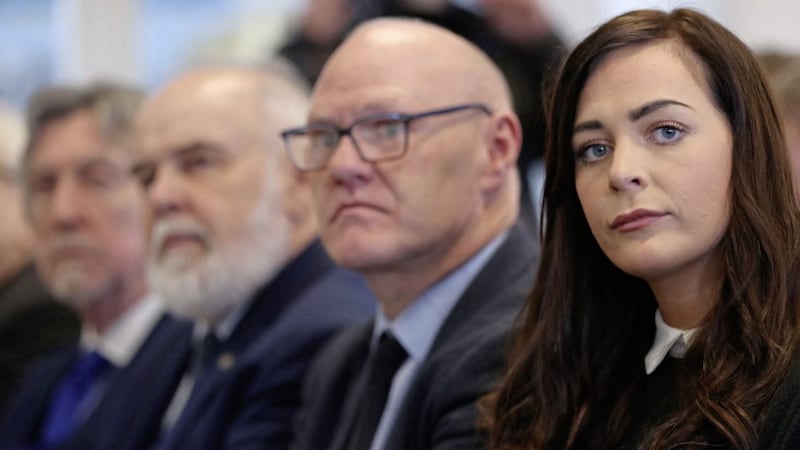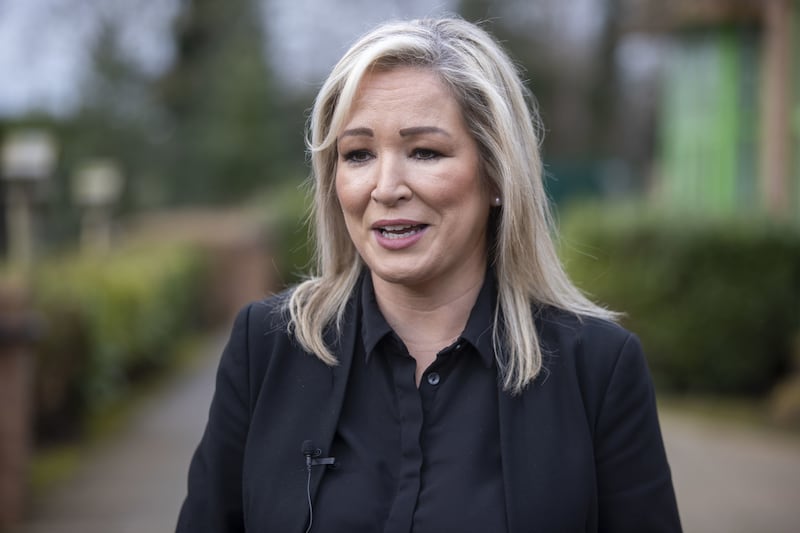THE number of Sinn Féin voters who believe the party should take its seats in Westminster has grown significantly in the past two years, according to a new opinion poll.
It comes after influential Catholic weekly The Tablet called for the House of Commons' oath of allegiance to be modified in order that Irish republicans can take their seats.
A leader column in the international weekly urges a similar oath to that at Stormont, where MLAs promise to obey the law rather than pledging allegiance to the British monarch.
"There is no reason the same procedure could not be followed at Westminster. Indeed the House of Commons itself approved it for the assembly at Stormont," the January 4 edition of The Tablet states.
Acknowledging that the Westminster oath has long been a "bone of contention", the leader said the "simple measure" would allow Sinn Féin’s seven MPs to take their seats.
It noted that without any change, Sinn Féin "seems unlikely to back down".
"Yet when the late Martin McGuinness, Sinn Féin’s leader in Stormont, unsuccessfully sought a ruling from the International Court of Human Rights that the requirement to take the oath as an MP violated his right to freedom of religion, the clear inference was that he and other Sinn Féin MPs would have taken their seats at Westminster had the oath of allegiance not been required," the leader said.
The Tablet said the present oath "may be regarded as a historical relic of past religious troubles".
"Because it offended the consciences of some non-Christian MPs, they are allowed to 'affirm' rather than to swear it," the leader stated.
"Similar latitude should be shown to Irish republicans who have also been lawfully elected to represent their constituents at Westminster."
The call came ahead of LucidTalk's latest survey of those who've voted for Sinn Féin at any stage over the past five years, which shows support for the party's abstentionist policy has dropped from almost complete unanimity to just over three quarters (75.9 per cent).
When the same survey was conducted in late 2017, a mere 1.6 per cent of Sinn Féin voters said the party's MPs should take their seats, whereas a survey conducted earlier this week found that 20.6 per cent advocated a policy shift. The poll was based on just over 1,000 responses with a margin of error in the results of +/–3.9 per cent.
Sinn Féin has long insisted that its abstentionist policy will not change.
In the aftermath of December's Westminster election, in which the the party's overall share of the vote fell by 6.7 percentage points to 22.8 per cent, former Foyle MLA Maeve McLaughlin acknowledged that abstentionism had been an issue for some voters.
"Clearly abstentionism was an issue for some people, but it equally is not an issue for many, many republicans," she told the BBC.
LucidTalk's Bill White said the results revealed that the party's voter base had moved but not enough to prompt a rethink by the party leadership.
"This can be viewed as big change, as although there’s still a big majority for the abstentionism policy, the minority of Sinn Féin voters who think this policy should be dropped has grown from under five per cent to now around 20 per cent, compared to when we last polled the SF voter base on this issue over two years ago," he said.
"Though it has to be said that there are still over three out of four Sinn Féin voters who still support the party's policy on abstention from Westminster, so on these figures the party leadership couldn’t change this policy at this stage without causing a split."







